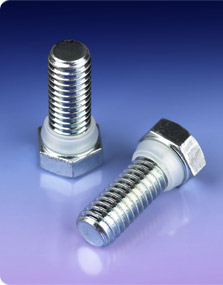 One particular type of hardware that is slowly gaining popularity for its diversity and many uses and applications is nylon hardware. But before you start thinking of soft and cloth-like nylon fasteners, washers, nuts and screws, which shouldn’t even be classified as hardware, nylon hardware products are made of plastic materials. Some of the more commonly used products for nylon hardware include polyvinyl chloride or PVC, acetal and polypropylene.
One particular type of hardware that is slowly gaining popularity for its diversity and many uses and applications is nylon hardware. But before you start thinking of soft and cloth-like nylon fasteners, washers, nuts and screws, which shouldn’t even be classified as hardware, nylon hardware products are made of plastic materials. Some of the more commonly used products for nylon hardware include polyvinyl chloride or PVC, acetal and polypropylene.
This particular type of hardware offers several advantages to electronics manufacturers and other industries. One of the advantages of using it is that it has outstanding insulating properties and it is also highly resistant against corrosion. Nylon fasteners and other products are also now more popularly used in many electronic products and systems because they are approximately half the weight of aluminum but still provide good strength and excellent wear and tear resistance. Lastly, hardware products of nylon also have more appealing product design options. They can have lustrous, semi-glossy or dull finishes without compromising the quality of the product.
Although nylon hardware products such as fasteners and screws offer a lot of advantages, there are some important considerations you need to keep in mind with this particular type of hardware.
First, you cannot use nylon fasteners and other nylon-based products in engineering applications and processes. Nylon fasteners and related products are not durable and reliable items to be used in industries or sectors that require a high level of strength and resilience. As such, they cannot be used in the mining, highway, railroad and building construction industries.
Second, you can’t use them in in boating or marine products and applications. This is because of the fact that nylon is hygroscopic — it can easily absorb and attract water from the surrounding environment, such as air. When they get wet, they will swell and deteriorate at an alarmingly fast rate.
Third, you cannot expose nylon toextremely high temperatures. The continuous service temperature of nylon fasteners and other items should not exceed 121 degrees. As such, they cannot be used in the construction or as parts of ovens and other equipment or products that have to be heated when used.
Finally, you need to remember that nylon does not share the UV and chemical resistances of other types of plastic. This means that you cannot leave nylon out in the sun for too long or use them in places where they will receive prolonged and large amounts of sunlight. When they are exposed to the sun for a long time, they will also deteriorate quickly. The nylon fastener will also begin to turn yellow in color, become very brittle and gradually unsafe and unusable.
There are many advantages to using nylon fasteners and you just need to remember when and where they should be suitably used and placed.
